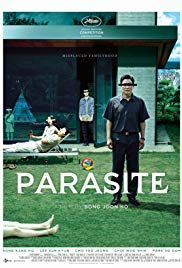Every year at the Oscars, there is a category for Best International Feature Film, formerly known as Best Foreign Language Film (keep in mind The Oscars are not the “be-all-end-all” when it comes to film, they get shit wrong all the time…but more about that in February I’m sure). However, I always find the brief snippets and synopses of these international films incredibly intriguing but am left wondering why The Oscars are always the first I have even heard of them.
It really is a shame that we do not consume more international movies because they have so much to offer us that American films are often lacking. Here are some reasons we need to watch more international films, and some recommendations on where to start:
- To learn
I understand that some may be apprehensive to watch international films due to the need to read subtitles. Even as someone who watches English-language content with subtitles on, I get that you want to sit back, relax, and simply watch. However, once you get used to it, you’re quite likely to find yourself more engaged with the movie than if you were just solely (probably half-ass/on your phone) listening. International films allow us to learn about history and different worldviews. In American movies, other worldviews can often be inaccurately portrayed, because they are not coming from experience –i.e. they are less authentic. International films can help to bridge this gap. An example is the recent 2018 Mexican film Roma, directed by Alfonso Cuarón. The film takes place in the 1970’s and follows an indigenous woman named Cleo, a live-in nanny for a rich family in an affluent neighborhood. Cleo and the other characters, as well as the plot, are all based on director Alfonso Cuarón’s childhood. Besides being a visually stunning film, it depicts the hardships that indigenous women faced in Mexico. Mexico still to this day has an epidemic of missing and murdered indigenous women.

- To experience different cultures
Much in the same vein of learning history through international film, we can experience different cultures through it as well. Think about American mainstream films and how often they depict American culture—the foods we eat, the clothes we wear, the way our teenagers organize themselves into cliques, and the things we value. International film often does a great job of weaving culture into their plots, while not making the culture the spectacle or sole point of the film. The 2018 Japanese film Shoplifters directed by Hirokazu Koreeda follows a group of people living together, who rely on shoplifting to survive. One day, the group finds a neglected young girl on her own and adopts her into their shoplifting family. The film is extremely well-written and forces audiences to grapple with conventional notions of family and moral values. Besides its stellar content, the movie depicts Japanese culture in ways that we typically don’t get to see. It has scenes that take place in a casino, a sex club, an impoverished family’s home, supermarkets, and more. Although none of these settings are integral to the plot or the movie’s sole purpose, these settings provide a window into what life might be like for the average Japanese citizen. Also, fair warning… if you’re a crier, this movie will make you cry.
And lastly…
- To be entertained
At the risk of sounding like the pretentious dude in your film studies class, international films often simply put more genuine creative effort into their productions than American films (remember that summer a few years ago when there was like 4 different movies that came out that had killer sharks as their main conflict? Been there done that, baby). Quite frankly, I am a bit sick of the same 8000 Marvel movies, and creativity and originality are where I find international films really pick up the slack. They find unique ways to entertain us by putting a spin on already common themes. A very recent example of this is the 2019 South Korean film Parasite directed by Bong Joon-ho. The film follows a lower-class family living in South Korea and documents their clever, creative, and deviant ways in climbing up the economic ladder. Class-conflict and moral reasoning are certainly not new topics to film, but this movie is without a doubt the most creative take on this topic that I have seen. It’s honestly every genre of film, rolled up into one super entertaining movie.
All in all, we need to watch more international films. They help us to learn, to experience different cultures, and they creatively entertain us. Pop some popcorn and put on your reading glasses, it’ll be worth it.
Other honorable mentions to check out: Amélie (France, directed by Jean-Pierre Jeunet), A Fantastic Woman (Chile, directed by Sebastián Lelio), and Pan’s Labyrinth (Mexico, directed by Guillermo del Toro).









I thought this was righteous and wicked.